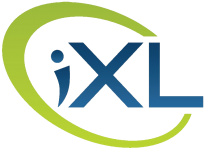Domain Authority and Its Impact on SEO
In the world of search engine optimization (SEO), numerous factors influence a website's visibility and ranking. Among these factors, Domain Authority (DA) stands out as a crucial metric that demands attention. Developed by Moz, DA is a search engine ranking score that predicts how well a website will rank on search engine result pages (SERPs). This comprehensive guide delves deep into the concept of DA, explaining its significance, calculation methodology, and actionable strategies to enhance your website's DA score.
What is Domain Authority?
Domain Authority is a metric developed by Moz that measures the overall strength and trustworthiness of a website. It is based on a 100-point logarithmic scale, with higher scores indicating a greater ability to rank higher in search results. DA is calculated by evaluating various factors, including the number of linking root domains, the quality of those links, and overall SEO performance. Unlike page-specific metrics, DA considers the entire website's authority, making it a valuable indicator of long-term SEO success.
Why is Domain Authority Important for SEO?
Domain Authority plays a pivotal role in determining a website's search engine ranking and organic traffic potential. Here's why it's a crucial aspect of SEO:
- Higher Ranking Potential: Websites with high DA scores are more likely to rank higher in search results. This increased visibility translates into greater organic traffic and brand exposure.
- Increased Organic Traffic: As DA improves, so does a website's potential to attract organic traffic. A higher DA signifies to search engines that a website is trustworthy and authoritative, leading to improved ranking and increased visibility to potential customers.
- Enhanced Credibility and Trust: Websites with high DA scores are often perceived as more credible and trustworthy by both search engines and users. This enhanced trust can lead to higher click-through rates, improved conversion rates, and stronger brand loyalty.
- Benchmarking and Competitive Analysis: DA provides a valuable benchmark for website owners and digital marketers to assess their SEO performance compared to competitors. By tracking DA over time, businesses can measure the effectiveness of their SEO strategies and identify areas for improvement.
Factors Influencing Domain Authority
Domain Authority is influenced by a complex algorithm that takes into account numerous factors. Understanding these factors is essential for developing effective strategies to improve your website's DA score:
- Linking Root Domains: One of the most significant factors influencing DA is the number of unique websites linking to yours. The more high-quality, authoritative websites that link to your domain, the stronger your DA will be.
- Quality of Backlinks: Not all backlinks are created equal. Backlinks from websites with high DA and Page Authority (PA) have a more substantial impact than links from low-quality or spammy websites.
- Content Quality and Relevance: Creating high-quality, relevant, and engaging content is crucial for attracting backlinks and improving DA. Content that provides value to users and is shareable across different online platforms can significantly enhance your website's authority.
- Website Structure and User Experience: A well-structured website with a user-friendly design and navigation contributes to a positive user experience. Search engines consider user experience signals, such as bounce rate and time on site, when evaluating DA.
- Social Signals: While not a direct ranking factor, social signals, such as shares, likes, and comments, can indirectly influence DA. Increased social engagement suggests that your content is valuable and engaging, which can attract backlinks and boost your website's authority.
- Domain Age: Older domains tend to have higher DA scores than newer ones, as they have had more time to build authority and attract backlinks. However, age is just one factor, and it's still possible to achieve a high DA with a relatively new website through effective SEO practices.
How to Improve Your Domain Authority
Improving your website's Domain Authority is an ongoing process that requires a multifaceted approach. Here are some actionable strategies to enhance your DA score:
- Earn High-Quality Backlinks: Focus on acquiring backlinks from reputable and relevant websites in your industry. Guest blogging, broken link building, and content marketing are effective strategies for earning valuable backlinks.
- Create High-Quality Content: Develop informative, engaging, and shareable content that provides value to your target audience. High-quality content attracts backlinks naturally and establishes your website as an authority in your niche.
- Optimize Your On-Page SEO: Ensure your website is technically sound and optimized for relevant keywords. This includes optimizing title tags, meta descriptions, header tags, and image alt text.
- Improve Website Speed and User Experience: Optimize your website's loading speed and ensure a seamless user experience across all devices. A fast-loading, mobile-friendly website contributes to a positive user experience, which can indirectly improve DA.
- Promote Your Content on Social Media: Share your content on social media platforms to increase visibility and attract backlinks. Engage with your followers, participate in industry discussions, and build relationships with influencers to expand your reach.
- Monitor Your Progress: Regularly monitor your website's DA score using tools like Moz's Link Explorer or Ahrefs. Track your progress over time and adjust your SEO strategies accordingly to maximize your DA improvement efforts.
By implementing these strategies, website owners and digital marketers can enhance their website's Domain Authority, improve search engine rankings, and drive more organic traffic to their online platforms.















